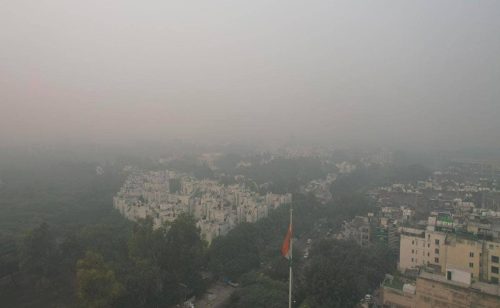
Delhi’s severe pollution: Learn about health impacts, symptoms, and precautions.
Rising levels of pollution over the last ten days in Delhi have kept pulmonologists busy as they are seeing an increasing number of patients in their clinics.
Dr GC Khilnani, chairman of PSRI Institute of Pulmonary, Critical Care and Sleep Medicine, is seeing an increase of 30 to 40 per cent in his case load. “And, it is likely to go up further with the kind of smog we are now experiencing and Diwali celebrations beginning soon,” says the man who is a member of the WHO Technical Advisory Group on Global Air Pollution and Health.
Dr Rajesh Chawla, senior consultant, chest medicine, critical care and sleep medicine at Indraprastha Apollo Hospital, says that he has been noting an increasing trend of such cases every year.
Who are at the highest risk of developing respiratory distress symptoms due to pollution?
Dr. Khilnani notes that patients with well-managed respiratory conditions, like asthma, are experiencing breathlessness, cough, and extreme dryness of the mouth, despite increased inhaler doses. Nebulization and steroids are sometimes required for improvement. Additionally, older individuals with heart conditions may face respiratory symptoms and an elevated risk of heart attacks. Dr. Khilnani cites a landmark study, conducted when he was at AIIMS, connecting increased pollution levels in Delhi to a rise in heart attacks, prompting the switch to CNG.
What are signs and symptoms?
Dr. Khilnani observes that his patients are experiencing a persistent cough, wheezing, and watery eyes. Additionally, respiratory infections in older individuals with underlying health conditions are resulting in increased hospitalizations. Dr. Chawla notes that even individuals who came to Delhi for medical evaluations unrelated to respiratory issues developed respiratory
What can you do at home?
At home, Dr. Khilnani recommends staying indoors on high pollution days, keeping doors and windows closed, avoiding crowded places, and rolling up car windows while traveling. He advises against strenuous outdoor activities. Regarding masks, Dr. Khilnani emphasizes the effectiveness of properly worn N95 or N99 masks, dismissing the usefulness of cloth or surgical masks.
For those with sensitive eyes, Dr. Chawla suggests wearing zero power glasses for protection and keeping the eyes hydrated. Proper hydration, achieved through warm water or turmeric milk, helps maintain respiratory moisture, reducing irritation from pollution.
